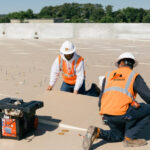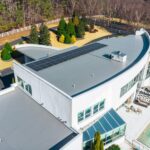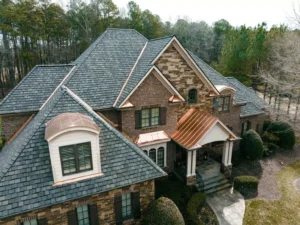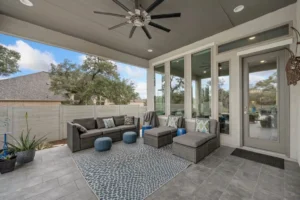Single-Ply Roofing
TPO Roof Repair & Replacement
Single-Ply Roofing membranes are installed in a single layer and are available in five main types: Ballasted, Fully-Adhered, Mechanically-Fastened, Partially-Adhered, and Self-Adhered. Seams can be joined using heat welding, solvent welding, seam tape, or adhesives, and often a mix of methods is used—for example, insulation may be mechanically fastened, while the membrane is fully adhered. We are certified to install products from leading manufacturers and can help you choose a system that fits your building’s needs and your budget.
- Versatile
- Long-Lasting
- Simple to Maintain
Looking for something else?
Frequently Asked Questions
What are the benefits of a TPO roof?
TPO (Thermoplastic Polyolefin) roofing offers long-lasting durability with the added benefit of heat-welded seams for strong protection. Its white reflective surface helps lower cooling costs, it’s eco-friendly, and it doesn’t produce dioxins or chlorine. TPO membranes are available in various thicknesses and roll widths to suit different project needs.
What are the benefits of a PVC roof?
PVC (Polyvinyl Chloride) roofing systems are one of the easiest single-ply membranes to install and heat-weld. Their key advantages include strong resistance to chemicals, punctures, and tears. They are ideal for roofs exposed to grease, oils, fuels, or acidic conditions, making them a top choice in challenging environments.
What are the benefits of a EPDM roof?
EPDM (Ethylene Propylene Diene Terpolymer) is a black single-ply “rubber roofing” membrane known for its durability and flexibility. It requires minimal maintenance, resists UV radiation and ozone, and adapts to extreme temperature changes by expanding and contracting with the building.
- All Posts






